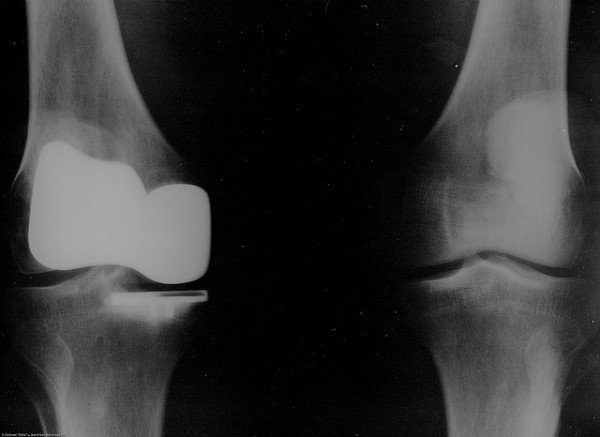Glucosamine Supplements has no Impact on Knee Deterioration and Pain: Study

Glucosamine supplements do not prevent deterioration or damages to cartilage among patients with chronic knee problems, reports a new study.
Researchers from the University of Arizona in Tucson analyzed the effects of oral glucosamine supplements to find whether it reduced the damages to knee cartilage. They studied pain scores of 201 participants who took part in the 24 week-study. The subjects suffered from pain in one or both knees that ranged between mild to moderate. They were divided into two groups - first one received 1500 milligrams of glucosamine hydrochloride mixed in 16-ounce bottle of lemonade and the second set was given a placebo drink.
The 3-telsa Magnetic Resonance Imaging scans (3tMRI) taken at the end of the trial revealed no changes in bone marrow lesions in the knees of 70 percent participants who received supplements. Only 18 percent of these patients had knee worsening while, 10 percent showed improvements.
Patients in placebo group had improvement in bone marrow lesions compared those who received supplements.
The findings revealed that neither group experienced any worsening of bone marrow or decreased excretion of CTX-II, a type of collagen in the urine which is indicative of severe tissue damage.
Dr. C. Kent Kwoh from the University of Arizona,Tucson, said in a press release, "Our study found no evidence that drinking a glucosamine supplement reduced knee cartilage damage, relieved pain, or improved function in individuals with chronic knee pain."
Glucosamine sulfates are non-vitamin and mineral dietary supplements that are popularly consumed by American adults to counteract the effects of joint deterioration and reduce pain caused by arthritis and osteoarthritis.
According to the press reports, the data by American College of Rheumatology suggest nearly, 27 million Americans aged above 25 are diagnosed with osteoarthritis. Nearly, 10 percent of the people aged over 18 take glucosamine supplements and the total worldwide expenditure on the accounts to $2 billion.
The research is available in the journal Arthritis and Rheumatology.
Mar 12, 2014 10:03 AM EDT





